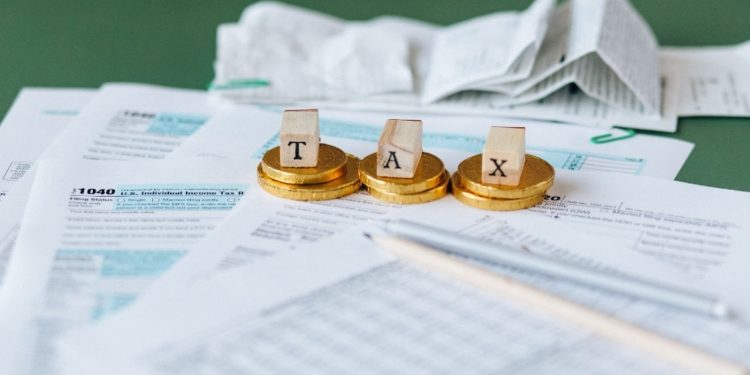Australia is historically a welcoming and stable nation for blockchain and cryptocurrency enterprises. One of its influencing factors is the support of the Australian government for future growth and innovation, as well as the country’s overall attitude to the financial technology sector. Currently, the government’s approach to regulating cryptocurrencies has been mostly non-interventionist, allowing the market to develop quickly without significant legal constraints. Unsurprisingly, more Australians are getting into crypto space.
Nearly one in five Australians, according to Statista, are cryptocurrency owners. The market has increased rapidly, evident in rising trading volumes on an exchange like CoinSpot, daily active users of cryptocurrency wallet apps (ex. Coinbase Wallet), and patronage of crypto brokers (ex. Immediate Edge). If you are one of them, this article might be for you because this gives the Do’s and Don’ts for investors and traders in the crypto market in Australia.
Do’s
Choose only AUSTRAC-registered cryptocurrency exchanges.
Cryptocurrency, digital currencies, and cryptocurrency exchanges are legal in Australia if they are registered in AUSTRAC. Under AUSTRAC, they have to adhere to the Anti-Money Laundering and Counter-Terrorism Financing Act 2006 of Australia. And to comply with government AML/CTF reporting requirements, the regulations mandate that organisations acting as exchanges or offering registrable exchange-type services verify their users’ identities, keep records, and identify and track their users. Unregistered exchanges are vulnerable to legal action and financial penalties.
Consider the effect of the taxation policy on crypto before investing.
See if your crypto investment is worth it despite the additional charges or profit-diminishing factors, such as taxes. One of the aspects that the Australian government is trying to regulate in the crypto industry in Australia is its taxation. Due to several nuances in the crypto world that set it apart from traditional banking, they began to update or refresh the tax rules that apply to crypto-assets. For instance, if you are trying to fill out your tax forms, things like staking, mining, and trading on decentralised exchanges could seem confusing.
It is important to remember that one of the promises of crypto that made people turn to it is its nature of not being under the rule of government, including taxation. So, this move may jeopardise one of the reasons why you invest in this asset in the first place. Balance it out. In terms of profit, are your crypto investments still worth pushing in the face of this taxation policy? If yes, then go for it. But if not, you may want to calculate your potential gains again, knowing that selling crypto will cause you extra. But, if you are okay with the government imposing a tax on crypto, then perhaps it will not be a problem for you; thus, you may continue your crypto trading and investing journey.
Understand your tax obligations before buying, selling, or investing in cryptocurrencies.
The Australian Taxation Office (ATO) can monitor specific cryptocurrency-related activities, such as buying, selling, and earning interest. Therefore, you must disclose your crypto investments and earnings on your income tax return. Discussing how ATO would tax an investor or trader will require another article to discuss it. To find out more information, visit the Yahoo Finance discussion about it. But the following is some essential knowledge you should have about cryptocurrency.
Australian nationals are exempt from paying the said taxes as long as they use fiat money in buying cryptocurrencies. Capital Gain Tax is only applicable when an investor disposes of bitcoin by selling, buying items, trading, gifting, converting, or exchanging for other cryptocurrencies. If you are a trader, ATO will tax you if you make money through operating a cryptocurrency trading exchange, a forging or mining operation, or from routinely buying and selling for short-term gains. The primary distinction between the two is that if investors hold for a year before selling, they will receive a 50% CGT discount. Traders do not have that.
Don’ts
Do not try to evade crypto taxes.
The Australian government strictly implements its policy regarding the taxation of Bitcoin and other cryptocurrencies. Thus, for those in Australia planning to invest in crypto, one must not try to disobey it. The Australian Taxation Office (ATO) intensified its policing of CGT reporting offences in 2021. According to the regulations, in cases where the ATO discovers a failure to disclose a profit from a cryptocurrency transaction, it may also impose a penalty equal to 75% of the unpaid tax liability and interest.
Do not consider privacy coins.
Others who trade uphold their right to privacy, especially when it comes to maintaining their anonymity when doing crypto transactions. For them, privacy is more significant than ever in an era where personal information is a commodity. That is why they choose privacy coins. However, if you reside in Australia, do not contemplate investing in privacy coins because Australian legislation has already compelled numerous exchanges to ban this coin permanently. According to Coinmarketcap, privacy coins are a group of cryptocurrencies that enables anonymous and private blockchain transactions by hiding the source and destination of each transaction. These anonymous cryptocurrencies employ various strategies, including masking a user’s actual wallet balance/address and mixing numerous transactions to avoid chain analysis.
Closing Thoughts
Australia has a history of taking the initiative to regulate cryptocurrencies, which is a reflection of their ongoing efforts to give crypto firms moving ahead a clear operational framework. Australia continues to have more crypto users, traders, and investors as time goes by. This trend calls for new policies and regulations for the crypto asset, which may sound positive or negative depending on which side you are on. While it is in development, there are already rules that apply in the present, the do’s and don’ts, which you may want to consider before diving into its crypto market.
David Prior
David Prior is the editor of Today News, responsible for the overall editorial strategy. He is an NCTJ-qualified journalist with over 20 years’ experience, and is also editor of the award-winning hyperlocal news title Altrincham Today. His LinkedIn profile is here.













































































